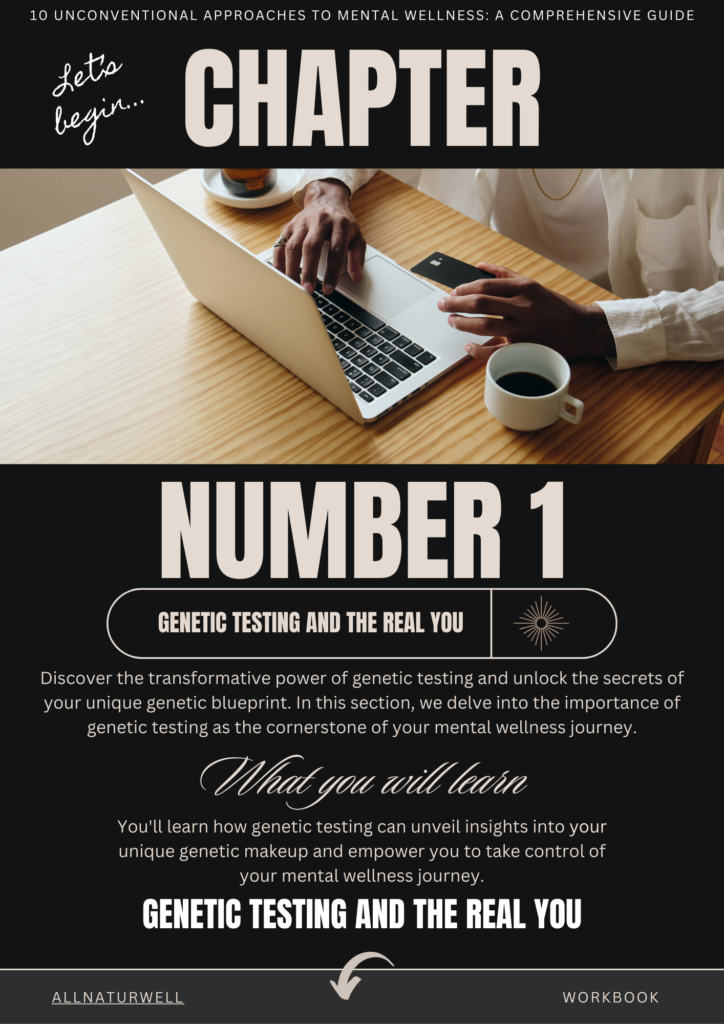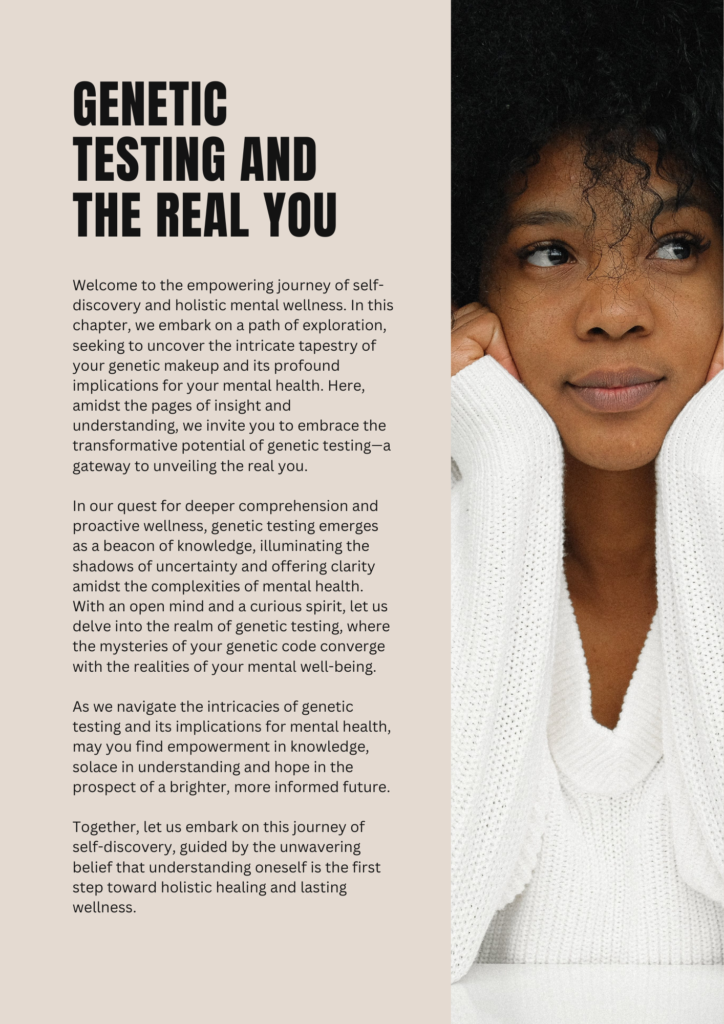What are the ‘genetic predispositions’ to depression?
Depression is a complex condition influenced by a combination of genetic, environmental and lifestyle factors. While environmental stressors and life experiences play a significant role, understanding your genetic predispositions can provide valuable insights into your mental health.
This blog post explores key genetic factors linked to depression and how genetic testing might offer a deeper understanding of your risk.
Genetic Predispositions to Depression
Signs of Depression
- Changes in sleep hygeine
- Moodiness and/or irritability with loss of hope
- Changes in appetite
- Engaging in risky behaviors and/or suicidal thoughts
- Having overwhelming feelings of loneliness, despair or a continuous sense of sadness
Genetic Predispositions to Depression
Several genes have been linked to an increased risk of depression.
One crucial gene is the Serotonin Transporter Gene (5-HTT), which affects the regulation of serotonin, a neurotransmitter vital for mood balance. Variations in this gene, particularly the short allele of the 5-HTTLPR polymorphism, have been associated with an increased risk of depression, especially when coupled with stress. This gene’s influence on serotonin regulation makes it a significant factor in understanding individual vulnerability to depression.
The Brain-Derived Neurotrophic Factor (BDNF) gene influences brain plasticity and neuron growth. Variants like the Val66Met polymorphism can affect how the brain adapts to stress and impacts mood regulation, potentially increasing depression risk. This gene’s role in brain function underscores the complex interplay between genetic factors and mental health.
Another significant gene is Catechol-O-Methyltransferase (COMT), involved in dopamine breakdown. Variations in the COMT gene can impact dopamine levels, which are linked to mood and reward systems, influencing susceptibility to depression. Understanding COMT variants can help in assessing how dopamine regulation might affect mood stability. (Read: ADHD and COMT gene mutation: Complicating The Night)
The Monoamine Oxidase A (MAOA) gene regulates neurotransmitter breakdown. Variants in this gene can affect neurotransmitter levels and contribute to depression risk. This gene’s role in neurotransmitter regulation highlights the biochemical pathways involved in mood disorders. (Read: Methylation Pathways:Silent Architects of our Mental Health)
Neuropeptide Y (NPY) gene plays a role in stress response and mood regulation. Variations in NPY can influence how individuals handle stress, potentially increasing their risk of depression. NPY’s impact on stress resilience is crucial for understanding individual differences in depression risk.
Finally, genes associated with the HPA Axis, such as CRH (Corticotropin-Releasing Hormone) and GR (Glucocorticoid Receptor), impact the body’s stress response. Variants in these genes can affect stress regulation and mood stability. The HPA Axis genes illustrate the connection between stress response mechanisms and depression.
Genetic Predispositions to Depression
Conclusion
Understanding genetic predispositions to depression involves exploring how specific gene variations impact neurotransmitter regulation, brain function, and stress response. By identifying these genetic factors, individuals can gain valuable insights into their mental health risks and take proactive steps to manage them.
Consideration for Genetic Testing
Genetic testing can provide a detailed picture of your individual genetic predispositions, helping you understand how your unique genetic makeup may contribute to your risk of depression. With this information, you can make more informed decisions about lifestyle changes and interventions tailored to your genetic profile. By integrating genetic insights with personalized strategies, you can better navigate your mental health journey and potentially mitigate the impact of genetic vulnerabilities.
YOU MAY BE INTERESTED IN:



Disclaimer: The information and/or products mentioned in these article are provided as information resources only and are not to be used or relied on to diagnose, treat, cure or prevent any disease. The statements made in this article have not been evaluated by the Food and Drug Administration. Any products mentioned are not intended to diagnose, treat, cure, or prevent any disease, but rather to be considered as an informational resource only to encourage critical thinking and personal research. The information in this article is intended for educational purposes only. The information is not intended to replace medical advice offered by licensed medical physicians. Please consult your doctor or health care practitioner for any and all medical advice.
Sign up for our weekly newsletter. it's free!

52 Weeks, 52 Topics! Get Our Latest ‘Stay Well’ Newsletter Every Monday And Start Your Week Off AllNaturWell. A New Tip, A New Study Revealed, A New Product Reviewed. Get It Right To Your Inbox Weekly. No Need To Wait. It’s Free!




